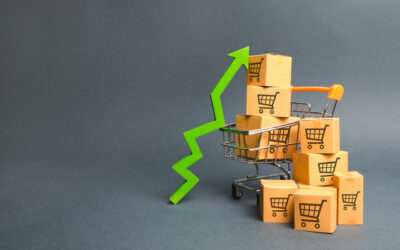Indonesia, like other countries in the world, is not immune to economic challenges, one of which is a recession. A recession is not merely a symptom but also has significant impacts on the daily lives of the people. Let’s delve deeper into the definition of a recession, its causes, impacts, the difference from a depression, and strategies to face and prevent it.
Definition of Recession
A recession is an economic condition characterized by a significant decline in economic growth. This is typically marked by a decrease in economic output, an increase in unemployment rates, and a reduction in business sector investments.
Causes of Economic Recession
- Economic Imbalance: One of the causes of a recession is economic imbalance resulting from budget deficits or poor trade balances.
- Rise in Inflation: High inflation can trigger a recession as people reduce their spending, leading to a decline in economic activity.
- Global Financial Crisis: Global financial crises, as seen in 2008, can be a major trigger for a national recession.
- Decline in Consumer Spending: A decrease in consumer spending can lead businesses to reduce production, negatively impacting the economy.
- Reduction in Investment: Economic uncertainty can cause a reduction in corporate investments, hindering economic growth.
- Weak Economic Demand: Weak demand from the market can trigger a recession as companies generate less income.
- Increase in Unemployment Rates: A decrease in economic activity is generally followed by an increase in unemployment rates due to workforce reductions.
- Production Reduction: Reduced production in various industrial sectors can be a trigger for a recession.
- Technology and Automation: Technological advancements and automation can decrease job demand, contributing to a recession.
Impact of Economic Recession
- Increased Unemployment: One of the most significant impacts is the rise in unemployment rates due to workforce reductions.
- Decreased Purchasing Power: With limited job opportunities, the purchasing power of the population decreases, hindering economic growth.
- Socioeconomic Disturbances: Recession can trigger socioeconomic disturbances such as an increase in crime rates and social instability.
Differences Between Recession and Economic Depression
- Definition of Economic Depression: Economic depression is a condition more severe than a recession, marked by a significant and prolonged decline in economic activity.
- Cycle and Duration Differences: Recession is generally cyclical and shorter, while depression has a longer and more challenging recovery duration.
- More Severe Impact of Depression: The impact of a depression is far more severe, including deep financial crises, widespread poverty, and structural economic changes.
Strategies to Face Economic Recession
- Diversify Investments: Diversifying investments can help reduce financial risks and protect assets during a recession.
- Maintain Financial Liquidity: Ensuring sufficient financial liquidity is crucial for companies to endure challenging times.
- Optimize Operational Efficiency: Companies can optimize operational efficiency to reduce production costs and enhance profitability.
- Strengthen Human Resources: Investing in training and developing human resources can help companies remain competitive.
Strategies to Prevent Recession
- Monetary and Fiscal Policies: Governments can implement monetary and fiscal policies to control the economy and prevent a recession.
- Strict Financial Market Oversight: Tight oversight of financial markets can prevent economic bubbles and financial crises.
- Enhance Economic Productivity: Encouraging increased economic productivity can help prevent stagnation and growth decline.
Recession is an economic phenomenon that can occur suddenly and has serious implications for society. It is essential for governments, companies, and the public to understand the causes, impacts, and strategies for facing and preventing recessions. With the right measures, we can minimize losses and build a stronger economic foundation.



